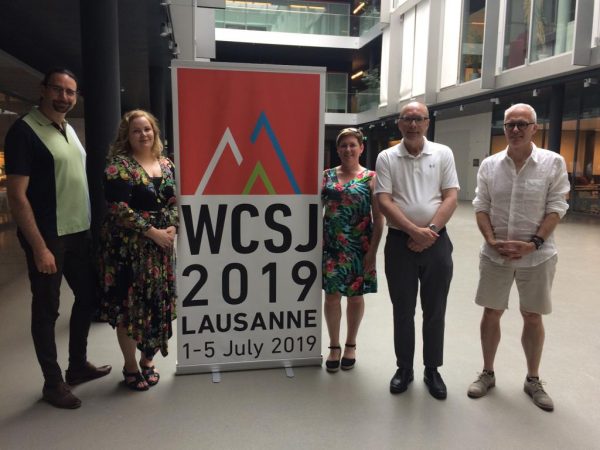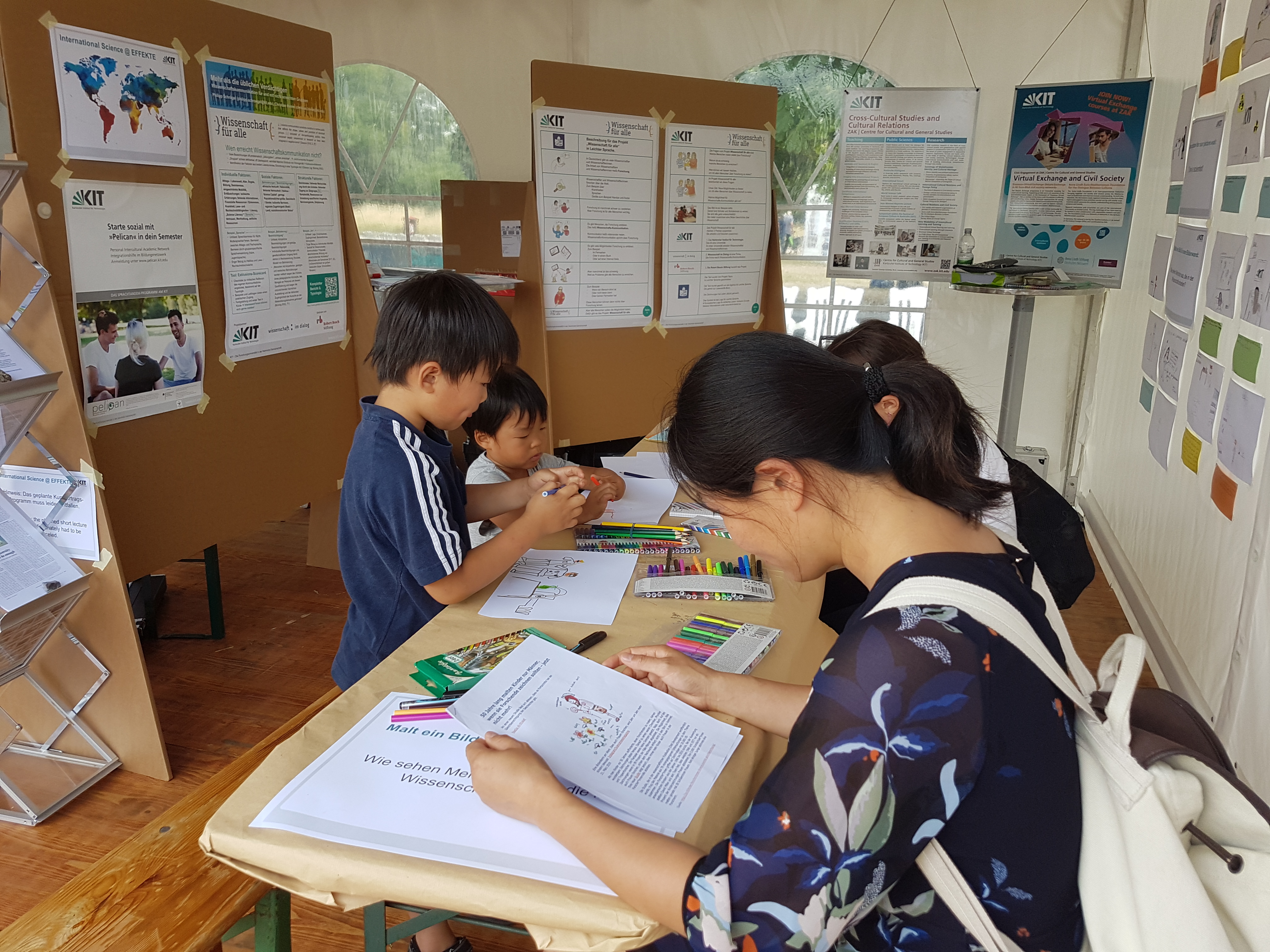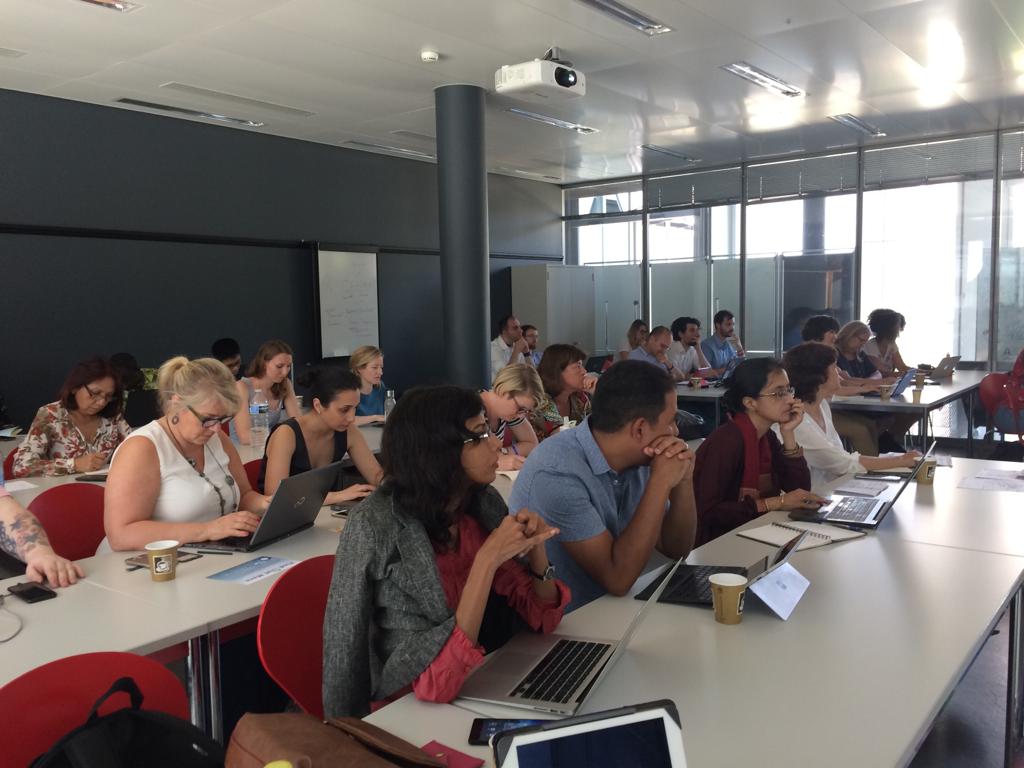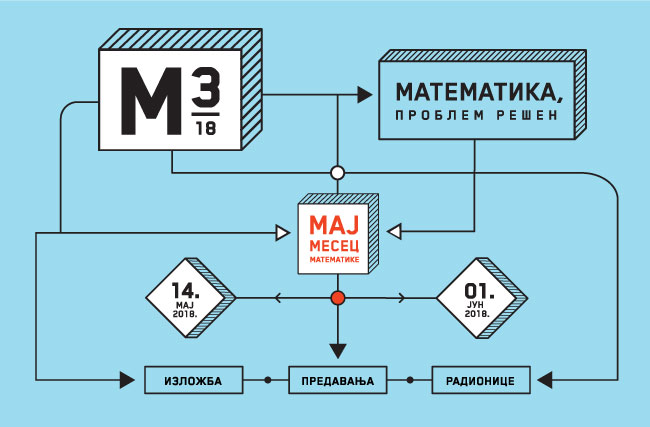The workshop, Journalism in A Transdisciplinary World: How Can We Burst The Science ‘Bubble’? was hosted by NUCLEUS during the World Conference of Science Journalists, in Lausanne, Switzerland, on July 1.
The workshop addressed the question: To what extent does journalism today look beyond reporting science to placing science in a wider context? Just as researchers are now encouraged to look beyond their ‘bubble’ and conduct transdisciplinary research, so too perhaps science journalists should look beyond the science they report, and relate to broader issues of society and economy, focusing critically on the ethical and social implications of different fields of research and innovation. If there is a science journalism bubble, how do we make the bubble more porous?
The event, involving panelists and moderators from the USA, UK, Ireland, and Germany attracted approximately 40 participants from 25 countries. Delegates came from a diversity of communication and journalism roles, from Heads of News Bureaus, Communication Management, freelance journalism, private and public research communication professionals, to journalists employed in high profile publications such as Nature, The Washington Post, the Times of India, The Economist, GEO and National Geographic.
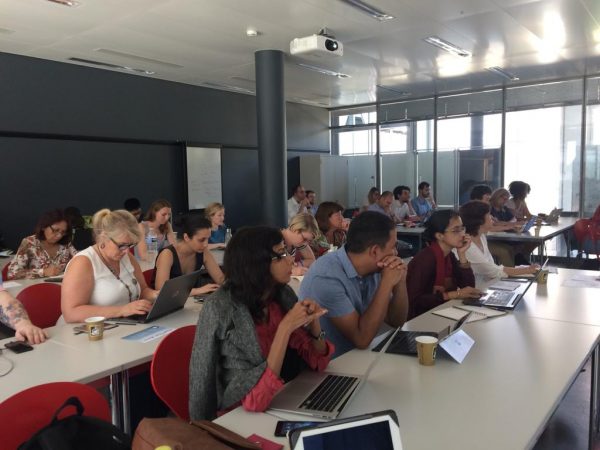
The interactive workshop was expertly moderated by Dr Claire O’Connell, with introductions by Prof. Alexander Gerber.
The expert panel included:
- Marie Boran: Dublin City University, Ireland
- Dr Andreas von Bubnoff: Rhine-Waal University, Sci. Communication, Germany
- Prof. Jay Rosen: New York University, Arthur L. Carter Journalism Institute, USA
Thought provoking discussions on the ethics of communicating matters as diverse as Artificial Intelligence and facial recognition technology and privacy concerns associated with these rapidly emerging technologies, or responsible journalism in the context of tourism and the negative and unanticipated consequences of reporting on climate change or environmental demise. How often does reporting on climate change, for example, come with a degree of self-censorship in the effort to be published? What is the real impact of travel journalism on wild landscapes? Does science journalism have a duty to give legal, ethical considerations in all reporting!
The benefits and issues associated with Citizen Science journalism and the closely related Open Source journalism, were discussed at length with a view that it is quite hard to break through professional resistance to this approach. Problems with verification of content and the motivation of people involved in this approach was raised. ‘Open source journalism is a lot harder than it looks. People need to have both the knowledge and the motivation to contribute, if you don’t have both these things then the Opens Source approach will collapse. ‘There are problems with verification. For example, how do you know if theCiitizen Science who volunteers is producing content that is correct, not simply using the option to push their own agenda?’
Many more questions and issues were raised about science journalism in an increasingly complex, competitive and crowded space, where the number of journalists skilled in covering science is diminishing.
The workshop also produced a lively exchange on social media, view here.
